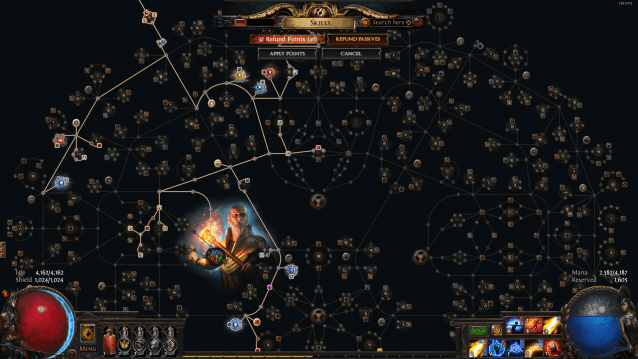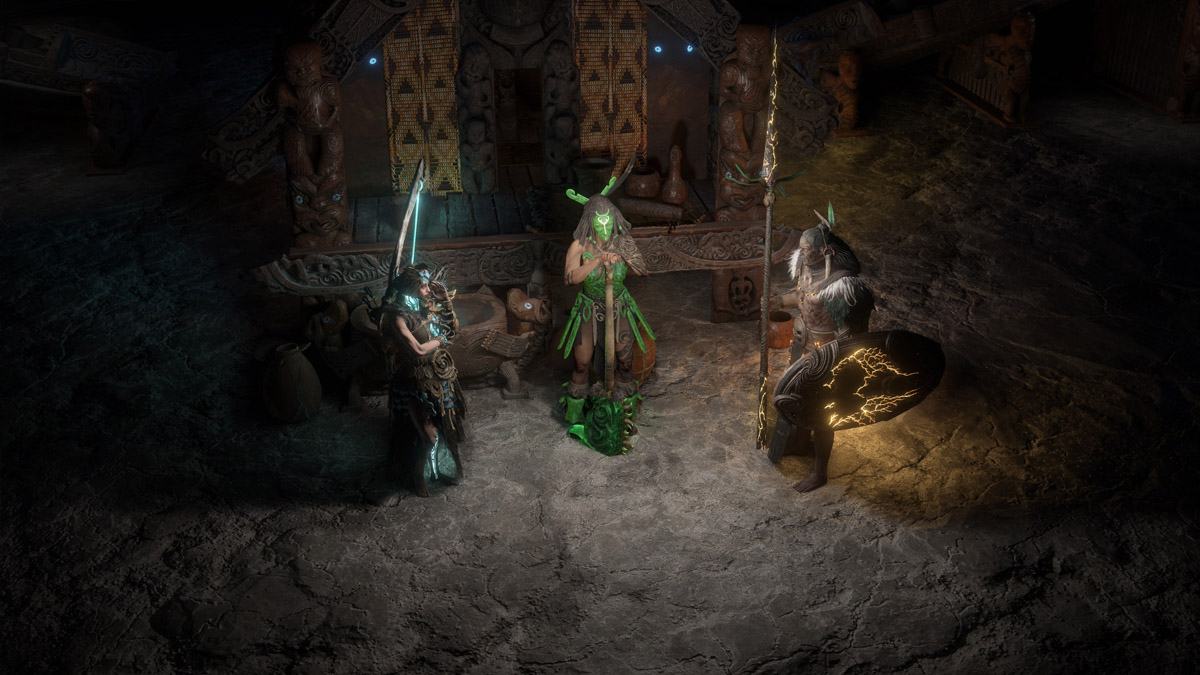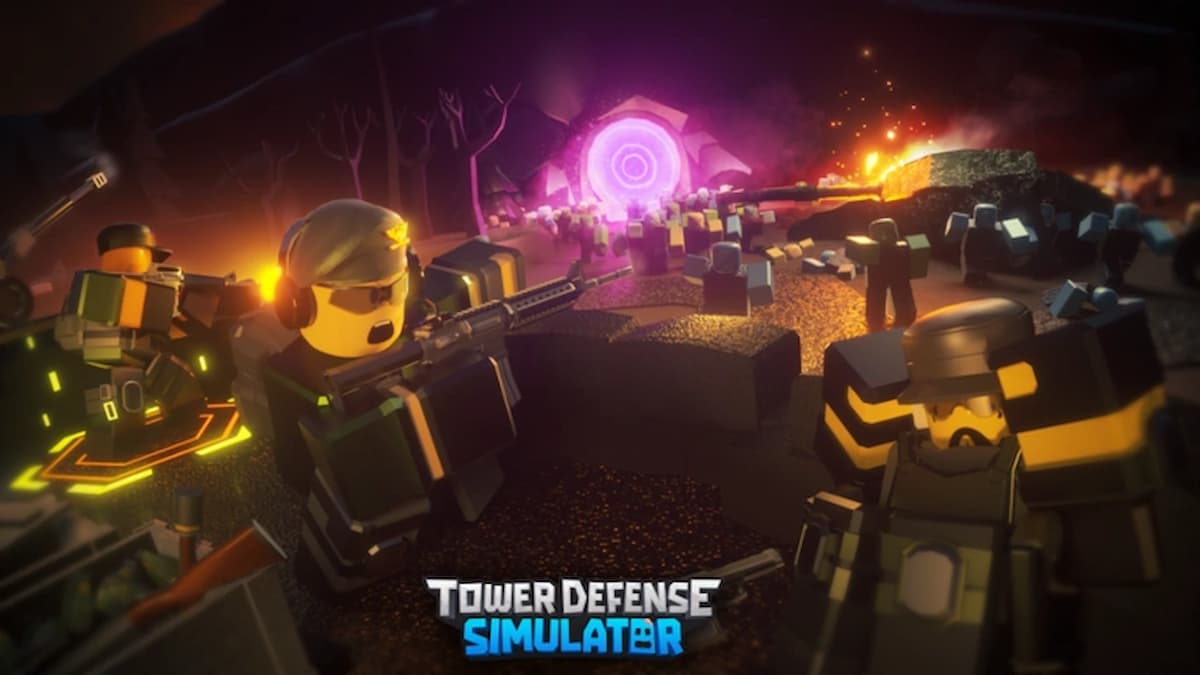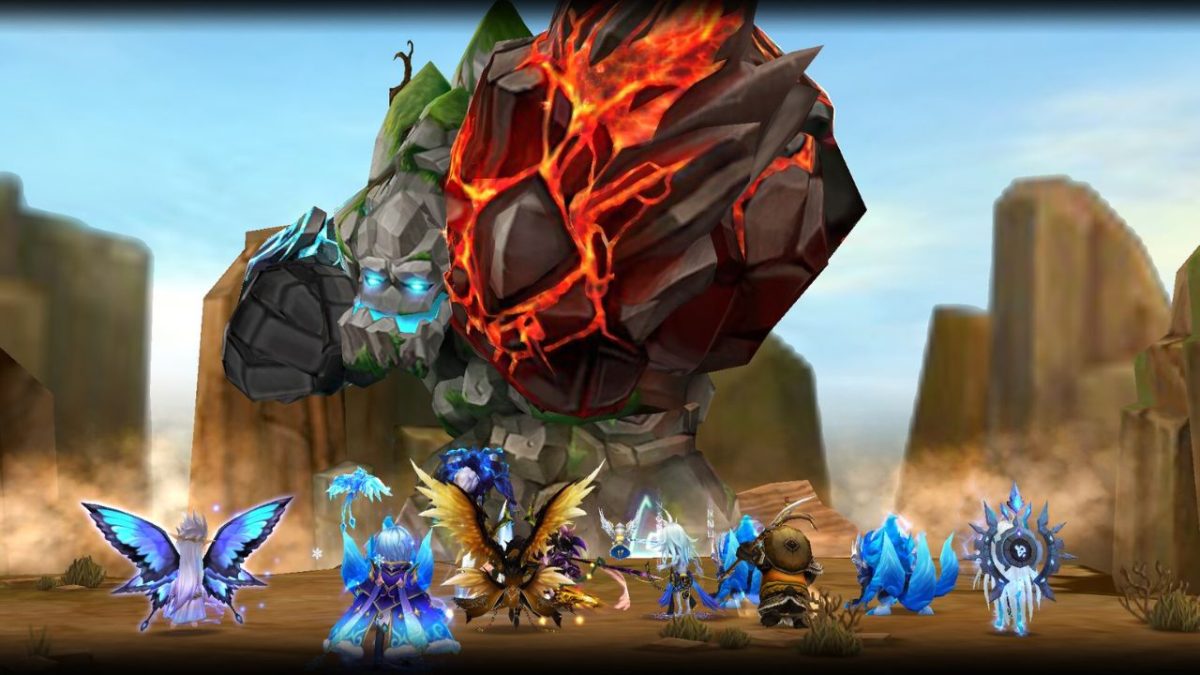So you want to jump into Path of Exile, eh? Think you’ve got what it takes to survive exile to Wraeclast and take on Kitava? In all honestly, PoE is a brilliant dungeon-crawler, but it doesn’t hold your hand early on.
While the game does have a sort-of built-in tutorial via the achievements menu, which does guide you through the early parts of PoE, there’s plenty more left out, or a lot extra that I feel is somewhat unnecessary until you reach the later stage of the game. Here are 10 important tips for those entering PoE for the first time.
10 must-know tips and tricks to starting PoE
Follow the Achievements and Challenges guides

Some of the most basic features in PoE go unexplained if you dive straight in, which is why the Achievements and Challenges page exists, and you can view it by pressing H. Some of these tasks include equipping a flask or using the map device for the first time, but all are vital in learning the basics and even some of the more advanced techniques in PoE.
From crafting new items to learning how to summon the game’s biggest and baddest bosses, completing Challenges will catch you up as you level through the campaign. You’ll even earn some cool gear along the way!
Follow a build

One look at the passive tree in PoE is enough to scare newbies away entirely. Trust me when I saw it for the first time, I wanted to give up there and then. Fortunately, the community has put together an assortment of builds that guide you as you level up.
Most builds cover exact skill gem requirements, a guide for which passives to level during each act, equipment needs, and plenty more. I recommend finding a skill gem or picking a class based on what you like, and then hunting for a corresponding build.
After one or two leagues, you may even be ready to make your own build!
Keep a little currency in your inventory
Unlike most other ARPGs, PoE does not use gold but rather an assortment of currencies that also interact with weapons, gear, maps, and more. At all times, I like to keep a little of each currency in my inventory in case I need to hit up the shop for something in particular.
This currency includes:
- Scrolls of Wisdom: Used to reveal hidden items you find along your travels.
- Portal Scrolls: Create a portal at your location to return to the current act’s town.
- Orb of Transmutation: Upgrades a normal (grey) item to a magic (blue) item with a random stat modifier(s).
- Orb of Alteration: Rerolls a magic item’s stats.
- Orb of Augmentation: Adds an extra modifier to a magic item.
Other currencies, like Chromatic Orbs (changing colored sockets on gear), Orbs of Fusing (changing the links between sockets on gear), or Regal Orbs (upgrades a magic item to a rare item), should most definitely be saved in your stash, as otherwise your inventory will fill up quickly.
Watch that HP bar
As you work through each Act of the campaign, monsters and bosses become more difficult, and without proper equipment or a focus on your passive tree, you might find yourself dying over and over again mainly due to your low health pool.
As a general rule of thumb, your total HP should be 300 x the current act number. By Act Five, you should have at least 1,500 HP. This may differ depending on your build or class, but be sure to seek out HP percentage passives in your tree and upgrade a piece of gear from now and again.
Find and open The Library in Act Three

When you hit Act Three, you may come across a location called The Library, which is connected to The Imperial Gardens. Inside is Siosa, who, after completing a puzzle inside the archives, will allow you to purchase almost any skill gem in the game.
Some skill gems normally wouldn’t be obtainable until much later, or even after Act 10, so having access to Siosa at The Library will mean you’ll be able to pick up any skill gem you need.
Essences are a cheap way to gear while leveling

Essences are relatively common throughout maps and campaign missions. You’ll often come across a group of enemies that are frozen and need to be released. Killing these released enemies drops essences, which you can immediately apply to existing equipment to upgrade and reroll stats.
Each essence grants a specific stat benefit to each piece of gear, and they are quite plentiful as you grind through the game, so utilize these early on to focus gear on the specific stats you need like HP or elemental resistance. Speaking of elemental resistance…
Cap those elemental resistances
This one’s more for the later game, but by the time you’re into the late level 70s or early 80s, you should be reaching the 75 percent cap for your fire, cold, and lightning resistances. Failing to do so will mean you’ll receive significantly more damage.
This becomes more difficult when you defeat Kitava in Act 10, after which you’ll cop a 60 percent reduction in all resistances. Be sure you’re reaching that 75-mark (and at least 20 percent Chaos resistance).
Complete the Aspirant’s Trial and unlock your Ascendancy
Each base class in PoE has access to Ascendancy classes, which include a range of incredibly powerful passives that further augment your build. To unlock your Ascendancy class in PoE, you’ll need to complete the Aspirant’s Trial, which can only be done when you finish each Trial of Ascendancy.
There are four Aspirant Trials in total, with Acts Three, Seven, and 10 marking the access points through the campaign, and the Eternal Labyrinth becoming accessible once you hit the map device. Complete these as soon as you’re able to further boost your character.
Use an item filter
Early in your PoE adventure, almost any item you encounter will be useful. As the game progresses, you’ll probably find your screen becomes totally cluttered with items that are completely useless to you. Enter the item filter which will hide those useless pieces of equipment you won’t be needing.
Easily the most popular item filter is FilterBlade, which is incredibly easy to install and customizable to suit any need. Adjusting my filter is one of the first things I do before starting a league, and after you finish your first league, you will too.
Become familiar with the map device

Cleared the campaign? Great! Now the real fun begins in the form of maps. There are 16 tiers of maps for you to pursue and over 30 unique maps with specialty bosses or requirements, totaling nearly 200 maps in total. Each map clear gets you an Atlas passive point you can use to upgrade specific elements of a map or focused for a certain encounter. If you’re after a specific map to complete, don’t forget about trading!
Do you want to upgrade your equipment with the Horticrafting Station? Perhaps you want to Delve into the caverns with Niko? Maybe you fancy yourself a bit of mystery and want to uncover the secrets of the Immortal Syndicate? All of this and more can be found via maps, which is the chief way you’ll earn XP after the campaign wraps.
This list should get you started, but there’s so much more to PoE, especially once you complete the campaign. Best of luck to you as you enter Wraeclast, and don’t forget not to die!












Published: Jan 13, 2024 10:01 pm